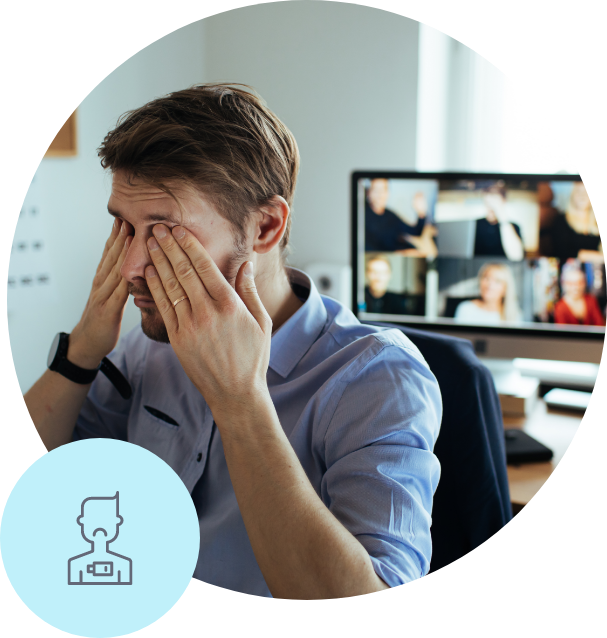Fatigue
Are you recovered from Covid but experiencing long-hauler symptoms that make it hard to get through the day? Unfortunately, post-Covid fatigue is quite common, leaving many patients wondering if they will ever return to their pre-illness energy levels.
The truth is that post-Covid fatigue can last for weeks or months after recovery, and it is one of the most common lingering symptoms. If you are continuing to experience these symptoms after your initial recovery, then it’s time to talk to a post-Covid specialist for a diagnosis and personalized treatment plan.

Symptoms of Post-Covid Fatigue
Mild symptoms of post-Covid fatigue might be as simple as “feeling tired” all the time, which takes a toll on your quality of life. But this ongoing tiredness is often paired with other symptoms of fatigue, including:
- Lethargy
- Persistently feeling tired or sleepy
- Headaches
- Delayed reflexes
- Difficulty sleeping
- Muscle and joint pain
- Impaired motor skills
- Irritability and moodiness
- Loss of appetite
- Decreased hand-eye coordination
- Poor decision-making skills
Some patients experience severe post-Covid fatigue symptoms, such as blurred vision, memory and recall problems, low motivation, poor concentration, hallucinations, delusions, and more.
Regardless of the severity of your symptoms, there are benefits available through talking to a post-Covid specialist. Our medical team specializes in long-hauler Covid patients, giving you access to personalized treatments from a team that understands the unique conditions that can happen during recovery after Covid.
Treatment Options for Post-Covid Fatigue
Providers are still trying to understand the underlying causes of post-Covid fatigue. At this point, treatments can help combat the symptoms until better treatment solutions are discovered in the future.
It’s essential to seek treatment because post-Covid fatigue can take a toll on every area of your life: home responsibilities, fitness and health, school, work, intimacy and sex, travel, recreation, and more. The goal is to design a multi-disciplinary treatment plan that helps you live life the way you did before contracting the virus.
Many of the treatment options are similar to other fatigue-related illnesses. Your provider might suggest a combination of lifestyle changes and medications:
- Over-the-counter or prescription medications to manage specific symptoms, such as pain
- Depression or anxiety medications if these mental health concerns coincide with fatigue symptoms
- Stimulant medications for patients who are having a hard time concentrating
- Relaxation exercises to reduce stress and alleviate tension, such as deep breathing, yoga, meditation, or tai chi
- Implementing a light exercise plan to improve mobility and energy, with increasing frequency and intensity as you start to feel better
- Managing daily activities to prioritize the most important tasks earlier in the day when you have more energy
- Identification of the activities that drain your energy or trigger fatigue so you can avoid them during your recovery
- Healthy diet and hydration to keep the body fueled, focusing on nutrient-dense ingredients and avoiding inflammatory foods